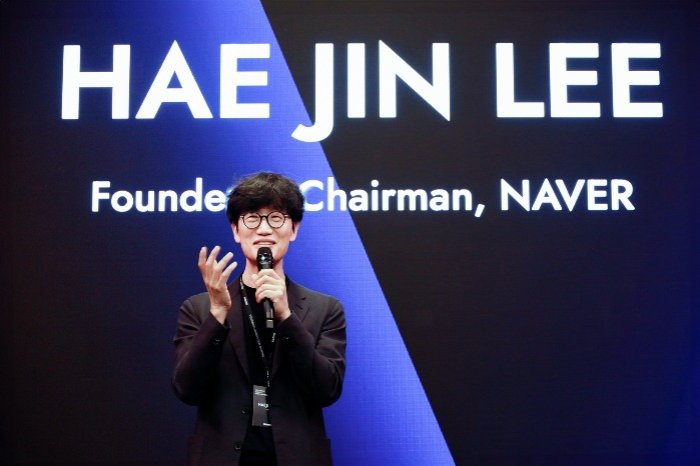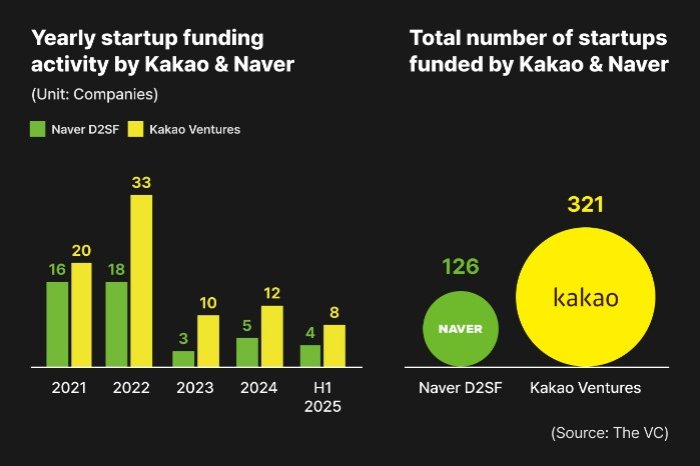Brand Stories
An AI-generated band got 1m plays on Spotify. Now music insiders say listeners should be warned | Artificial intelligence (AI)

They went viral, amassing more than 1m streams on Spotify in a matter of weeks, but it later emerged that hot new band the Velvet Sundown were AI-generated – right down to their music, promotional images and backstory.
The episode has triggered a debate about authenticity, with music industry insiders saying streaming sites should be legally obliged to tag music created by AI-generated acts so consumers can make informed decisions about what they are listening to.
Initially, the “band”, described as “a synthetic music project guided by human creative direction”, denied they were an AI creation, and released two albums in June called Floating On Echoes and Dust And Silence, which were similar to the country folk of Crosby, Stills, Nash & Young.
Things became more complicated when someone describing himself as an “adjunct” member told reporters that the Velvet Sundown had used the generative AI platform Suno in the creation of their songs, and that the project was an “art hoax”.
The band’s official social media channels denied this and said the group’s identity was being “hijacked”, before releasing a statement confirming that the group was an AI creation and was “Not quite human. Not quite machine” but living “somewhere in between”.
Several figures told the Guardian that the present situation, where streaming sites, including Spotify, are under no legal obligation to identify AI-generated music, left consumers unaware of the origins of the songs they’re listening to.
Roberto Neri, the chief executive of the Ivors Academy, said: “AI-generated bands like Velvet Sundown that are reaching big audiences without involving human creators raise serious concerns around transparency, authorship and consent.”
Neri added that if “used ethically”, AI has the potential to enhance songwriting, but said at present his organisation was concerned with what he called “deeply troubling issues” with the use of AI in music.
Sophie Jones, the chief strategy officer at the music trade body the British Phonographic Industry (BPI), backed calls for clear labelling. “We believe that AI should be used to serve human creativity, not supplant it,” said Jones.
“That’s why we’re calling on the UK government to protect copyright and introduce new transparency obligations for AI companies so that music rights can be licensed and enforced, as well as calling for the clear labelling of content solely generated by AI.”
Liz Pelly, the author of Mood Machine: The Rise of Spotify and the Costs of the Perfect Playlist, said independent artists could be exploited by people behind AI bands who might create tracks that are trained using their music.
She referred to the 2023 case of a song that was uploaded to TikTok, Spotify and YouTube, which used AI-generated vocals claiming to be the Weeknd and Drake. Universal Music Group said the song was “infringing content created with generative AI” and it was removed shortly after it was uploaded.
It is not clear what music the Velvet Sundown’s albums were trained on, with critics saying that lack of clarity means independent artists could be losing out on compensation.
Pelly said: “We need to make sure that it’s not just pop stars whose interests are being looked after, all artists should have the ability to know if their work has been exploited in this way.”
For some, the appearance of the Velvet Sundown is the logical next step as music and AI combine, while legislation is fighting to keep up with a rapidly changing musical ecosystem.
after newsletter promotion
Jones said: “The rise of AI-generated bands and music entering the market points to the fact that tech companies have been training AI models using creative works – largely without authorisation or payment to creators and rights-holders – in order to directly compete with human artistry.”
Neri added that the UK has a chance to lead the world in ethical AI adoption in music but said there needed to be robust legal frameworks that “guarantee consent and fair remuneration for creators, and clear labelling for listeners”.
“Without such safeguards, AI risks repeating the same mistakes seen in streaming, where big tech profits while music creators are left behind,” he added.
Aurélien Hérault, the chief innovation officer at the music streaming service Deezer, said the company uses detection software that identifies AI-generated tracks and tags them.
He said: “For the moment, I think platforms need to be transparent and try to inform users. For a period of time, what I call the ‘naturalisation of AI’, we need to inform users when it’s used or not.”
Hérault did not rule out removing tagging in future if AI-generated music becomes more popular and musicians begin to use it like an “instrument”.
Deezer recently told the Guardian that up to seven out of 10 streams of AI-generated music on the platform are fraudulent.
At present, Spotify does not label music as AI-generated and has previously been criticised for populating some playlists with music by “ghost artists” – fake acts that create stock music.
A spokesperson for the company said Spotify does not prioritise AI-generated music. “All music on Spotify, including AI-generated music, is created, owned and uploaded by licensed third parties,” they said.
Brand Stories
Kakao, Naver step up global AI hunt amid fierce tech race

South Korea’s internet pioneers, Kakao Corp. and Naver Corp., are ramping up overseas investments in artificial intelligence startups, shifting focus to North America in a move that is raising concerns among domestic startups over tighter funding at home.
After a two-year lull, both companies have resumed active startup investing but with a markedly global tilt.
The pair, which respectively backed about 20 startups annually during 2021–2022, have since cut that pace by more than half, according to Seoul-based tracker The VC.
Now, their investments are skewed toward US-based companies developing next-generation AI technologies in hopes of tapping innovations that align with their core platforms or open up new growth paths.
AI IS A MUST FOR ANOTHER LEAP
According to the investment banking industry on Tuesday, Naver Cloud Corp., a cloud computing arm of Naver, recently led a Series A funding round for Urban Datalab, the developer of an AI medical platform, MeDiAuto, with its own investment of 3.5 billion won ($2.5 million).
Naver’s newly launched Naver Ventures also made its debut investment in TwelveLabs, a Silicon Valley-based startup with an unrivaled multimodal AI technology that has already attracted big-name backers, including Nvidia, Samsung Electronics Co. and Intel Corp.
“We are open to collaboration (between Naver and TwelveLabs) next year or later,” said Kim Sung-ho, head of Naver’s Immersive Media Platform team.
Naver’s renewed push into AI investing has gained further momentum since its founder Lee Hae-jin returned as chairman earlier this year.
“If David wants to beat Goliath, he must aim well with the right stone,” said Lee at a ceremony celebrating the opening of Naver Ventures, the company’s first dedicated overseas venture capital in Silicon Valley, last month. “We are in the middle of picking the right stone.”
In this analogy, Naver is the underdog battling US tech giants in the AI race.
Naver’s in-house corporate venturing (CV) team, D2SF, has also made a series of AI-focused investments this year.
It has invested in AI-powered logistics platform startup Techtaka; AI game developer Anchor Node; AI-supported autonomous driving technology developer whereable.ai; and multi-modal commerce AI startup Studio Lab.
Kakao has been similarly active in investing in AI companies.
According to The VC, Kakao Investment Co., Kakao’s venture investment arm, has recently invested 3 billion won in Seoul-based AI chip startup FurisosaAI Inc.
Its another venture capital company, Kakao Ventures Corp. has joined early-stage funding rounds of AI agent developer Tzafon and large language model startup Trillion Labs.
NORTH AMERICA EMERGES AS A NEW BATTLEGROUND
While the uptick in tech investment is a welcome shift after years of slowdown, Korean startups now worry they may be left behind.
Historically reliant on Kakao and Naver for early-stage capital, domestic startups fear the funding tide may be turning westward – just as global AI interest is surging.

Of five startups Naver D2SF has invested in 2024, three are US-based, including 3D content developer Claythis and YesPlz AI, a fashion-focused multimodal AI developer.
Kakao Ventures has also invested in FS2, a 3D AI chip design company led by MIT engineers; Oligo Space, an automated spacecraft design and production toolchain developer; and medTech startup Kompass Diagnostics.
To deepen its reach in the North American venture capital ecosystem, Naver opened D2SF’s US office in Silicon Valley last year and launched Naver Ventures in the global tech hub to scout growth-stage firms.
Kakao Ventures’ officials regularly visit the US once every two to three months to build ties with local VCs, engineers and researchers.
Investors see more room for upside in US startups than in their Korean counterparts, offering greater synergy.

“The ecosystem for tech-based startups is more mature in the US, and top US universities generate stronger pipelines of investable early-stage companies,” said an official from a Korean VC company.
The trend also reflects a strategic calculus, said industry observers.
Korean tech giants face less public scrutiny abroad compared to frequent domestic criticism over big tech firms’ aggressive M&A moves with startups after investment.
That’s prompting concern that capital could increasingly flow to overseas startups instead of bolstering the local tech scene.
“Startup funding is borderless,” said an official in the VC industry. “Without competitiveness to appeal globally, any startups won’t survive.”
Write to Eun-Yi Ko at koko@hankyung.com
Sookyung Seo edited this article.
Brand Stories
‘Cruising is booming:’ Why luxury hotel brands are launching lavish cruise ships | Exclusive

Ritz-Carlton and Four Seasons are two of the world’s most renowned and expensive and hotel companies.
But forget staying in their hotel rooms – they’re among the top travel brands taking to the water.
And Waldorf Astoria – which is owned by Hilton – is the latest travel firm to strike out, launching a luxury Nile cruise in 2026.
DEAL: Save hundreds on a Queensland holiday with Discovery Parks
More akin to mega yachts and much smaller than regular cruise ships these vessels hold just a few hundred cashed-up guests.
Ritz Carlton recently launched its third ship, Luminara, with an A-list filled party.
READ MORE: Why Orange is the ultimate winter escape you haven’t considered (but really should)
Models Kendall Jenner and Naomi Campbell, TV host Martha Stewart, and actors Orlando Bloom and Kate Hudson were among those invited to the extravagant party.
Outside of hotels, on-the-ground tour company Trafalgar announced it is also expanding into river cruising with two new ships, the Trafalgar Verity and Trafalgar Reverie, for sailings on the Rhine and Danube rivers, starting in April 2026.

Ted Blamey Principal at specialist cruise consulting firm CHART Management Consultants says there are many reasons all these firms want in on the water-bound holidays.
“The first is basically that cruising is booming, so it’s a great opportunity for experienced travel and accommodation companies to capitalise on,” he tells 9Travel.
“Second, I guess, would be, that these organisations, they have very powerful existing guest basis.
READ MORE: Hawaii is the most popular US destination for Aussies, as new figures show a major shift in travel

“They have a very significant number of past guests who are loyal to the brand, and love it, and why not offer them something new that will continue to get their loyalty and of course, earn revenues.
“I guess another reason is that these same people are open to new experiences.”
Meanwhile he said cruising is unique from a business point of view because guests are captive on the vessel much of the time.
And that means you can control their holiday – as well as retain much of the money they pay to be there.
READ MORE: Best time to visit Bali: How to avoid crowds, high prices and the rainy season

The new players are competing against other luxury cruise brands such as Crystal Crusies, Ponant, Explora Journeys, Azamara, Silversea, and Regent Seven Seas.
But this could be good for the whole industry Ted says.
“I think all of us in the industry have felt for years that competition is a good thing, it grows the market,” he says.

Even Orient Express, most famous for its lavish trains, is getting involved. It’s planning the world’s largest sailing ship, Orient Express Silenseas, for next year.
Smaller Swiss brand, Aman is also setting sail.
Meanwhile, images show the first vessel for Four Seasons won’t be anything like normal cruiser.
The yacht will have an extendable marina on both sides for water sports, swimming or simply posing for Instagram photos.

Captain Kate McCue has jumped ship from Celebrity Cruises to captain it.
But one thing all the vessels will have in common is that their high-net-worth guests can enjoy the finest things the world can offer.
That includes an almost one to one crew member to guest ratio, fine dining meals from top chefs and lavish suites with huge terraces.
Prices are not always widely advertised but run into the tens of thousands, making a trip something everyday Aussie cruises can only dream of.
Brand Stories
Vermont lawmaker co-chairs national AI task force

MONTPELIER, Vt. (WCAX) – A Vermont lawmaker has been selected to co-lead a national task force on artificial intelligence policy.
Bradford Democratic Rep. Monique Priestley co-chairs the task force with a Republican representative from Utah.
She says her focus is to learn more about how AI impacts consumer protection and data policy.
“Right now, AI is touching everything that we are interacting with. It’s used in software that determines if you can get a loan, if you can get an apartment, or whether or not you qualify for different education. Your health care is largely impacted by artificial intelligence,” Priestley said.
The task force will connect lawmakers with expert voices in the industry and create a first-of-its-kind bipartisan state AI policy memo to guide policymaking across the country.
Copyright 2025 WCAX. All rights reserved.
-

 Brand Stories2 days ago
Brand Stories2 days agoBloom Hotels: A Modern Vision of Hospitality Redefining Travel
-

 Brand Stories1 day ago
Brand Stories1 day agoOlive Living: India’s Intelligent, Community-Centric Hospitality Powerhouse
-

 Destinations & Things To Do3 days ago
Destinations & Things To Do3 days agoUntouched Destinations: Stunning Hidden Gems You Must Visit
-

 AI in Travel3 days ago
AI in Travel3 days agoAI Travel Revolution: Must-Have Guide to the Best Experience
-

 Brand Stories3 weeks ago
Brand Stories3 weeks agoVoice AI Startup ElevenLabs Plans to Add Hubs Around the World
-

 Brand Stories2 weeks ago
Brand Stories2 weeks agoHow Elon Musk’s rogue Grok chatbot became a cautionary AI tale
-

 Asia Travel Pulse3 weeks ago
Asia Travel Pulse3 weeks agoLooking For Adventure In Asia? Here Are 7 Epic Destinations You Need To Experience At Least Once – Zee News
-

 AI in Travel3 weeks ago
AI in Travel3 weeks ago‘Will AI take my job?’ A trip to a Beijing fortune-telling bar to see what lies ahead | China
-

 Brand Stories3 weeks ago
Brand Stories3 weeks agoChatGPT — the last of the great romantics
-

 The Travel Revolution of Our Era1 month ago
The Travel Revolution of Our Era1 month agoCheQin.ai Redefines Hotel Booking with Zero-Commission Model



You must be logged in to post a comment Login